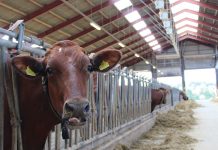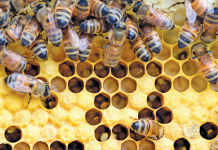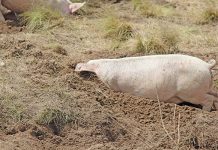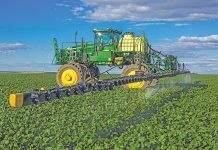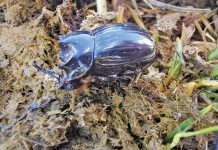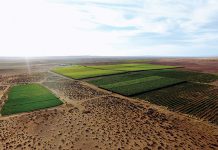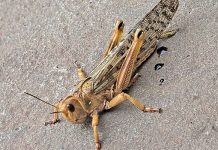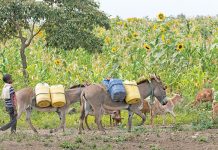Lessons from Danish researchers and farmers
Research and development in agriculture is accelerating to keep up with the numerous challenges in the sector. On a recent agricultural tour of Denmark, Lindi Botha discovered the many different ways in which the Danish are tackling the age-old dilemma of optimising inputs while achieving maximum output.
The approaching crisis threatening SA’s bees and beekeepers
With bees pollinating approximately one-third of the world’s crops, commercial pollination services are a crucial and sought-after resource for many farmers. However, unscrupulous industry players are doing more harm than good, exacerbating the problem of dwindling bee populations.
Using livestock for healthier soil
Angus McIntosh, a livestock farmer at Spier, recently hosted an information day during which he discussed the importance of ‘outdoor’ livestock production for the future of food security.
The unique pollination strategies of plants ensure their survival
South Africa is filled with an array of remarkable plant species. Landscape designer Leon Kluge spoke to Magda du Toit about this mysterious world of flora and the tricks they have developed to attract pollinators in order to survive.
Floating wetlands: a cleaning solution for polluted farm dams
Floating wetlands are successful at improving the quality of nutrient-polluted water, and can be made from a few basic materials, says Dr Alanna Rebelo, a senior researcher in the Department of Conservation Ecology and Entomology at Stellenbosch University.
Healthier trees, thanks to pest-control partners
Professors Almuth Hammerbacher, Bernard Slippers, Brett Hurley and Chris Weldon of the Forestry and Agricultural Biotechnology Institute at the University of Pretoria speak about the importance of protecting South Africa’s timber plantations.
Contaminants threatening the health of soil and water
The fouling of fresh water supplies with pollutants emanating from primary agriculture has become a serious issue in South Africa. In this article, the Agricultural Research Council discusses the origins and impact of so-called contaminants of emerging concern.
Tips for making your farm dung beetle-friendly
The beneficial role of insects in agriculture should not be underestimated, and this is equally true of dung beetles. As these fascinating recycling experts go about their daily business of breaking up and distributing dung in nature, they also offer a variety of benefits to the agriculture sector.
Conservation alliances protect natural heritage
In 1984, when Charl van der Merwe purchased Brakfontein in the Northern Cape for sheep production, he could never have guessed that his farm would one day become a key element in the creation of a 240 000ha interprovincial protected area. Wouter Kriel spoke to two people involved in this far-reaching development.
Beware! The locusts are swarming this summer
South Africa looks to be heading for another large-scale brown locust outbreak this season, according to Dr Gerhard Vedoorn of CropLife South Africa and Dr Roger Price of the Agricultural Research Council. They spoke to Glenneis Kriel about the most effective means of combating these swarms.
Preventing and fighting veld fires
Fire protection associations play an integral part in managing fire risk during the dry winter season. Pieter Dempsey spoke to Johann Breytenbach, general manager of the Free State Umbrella Fire Protection Association, about the importance of these organisations and how they can grow their capacity and capability.
Breaking the cycle of child labour in agriculture
Across the world, child labour is practised more in agriculture than in any other sector. This is despite the numerous hazards involved in farm work, including unprotected exposure to chemicals, working with potentially dangerous livestock, and carrying heavy loads over long distances. Moreover, a lack of access to quality education means these children not only suffer in terms of development, but are unlikely to escape the poverty trap. Janine Ryan investigates.

